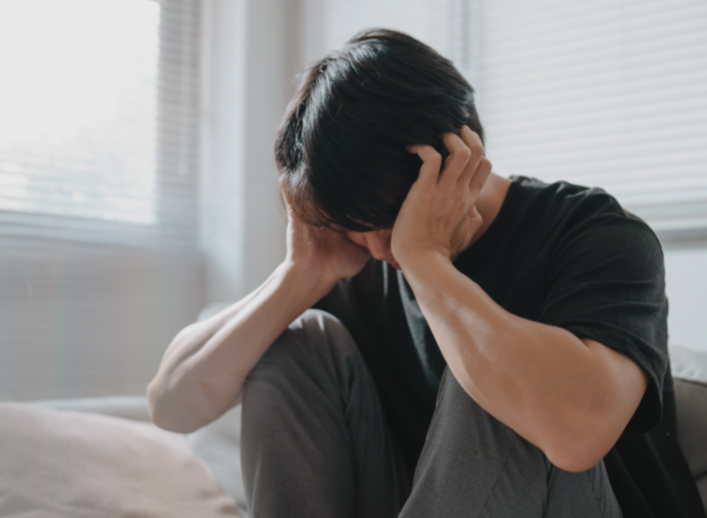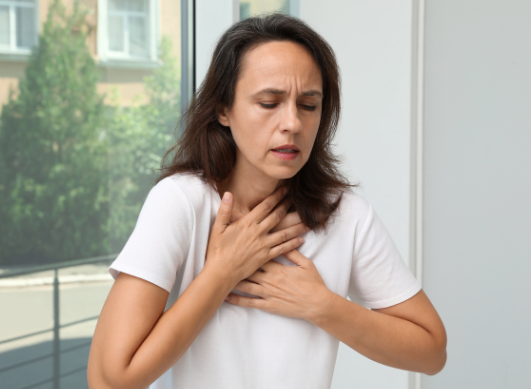- Home
- Forums
- COPD Forum
- Research and useful tips - COPD
- 11 Ways to Live Better With COPD
Patients COPD
11 Ways to Live Better With COPD
- 226 views
- 2 times supported
- 7 comments
All comments
![]()
QUince
Good advisor
![]()
QUince
Last activity on 25/02/2025 at 10:11
Joined in 2016
19 comments posted | 8 in the COPD Forum
1 of their responses was helpful to members
Rewards
-
Good Advisor
-
Contributor
-
Committed
-
Explorer
Just going to start a six weeks course on Pulmonary Rehabilitation

JosephineO
Community managerGood advisor
![]()
JosephineO
Community manager
Last activity on 15/07/2024 at 09:21
Joined in 2018
989 comments posted | 38 in the COPD Forum
6 of their responses were helpful to members
Rewards
-
Good Advisor
-
Contributor
-
Committed
-
Explorer
-
Evaluator
-
Friend
@QUince I hope that it all goes well for your Quince, best of luck.
See the signature
Josephine, Community Manager
![]()
QUince
Good advisor
![]()
QUince
Last activity on 25/02/2025 at 10:11
Joined in 2016
19 comments posted | 8 in the COPD Forum
1 of their responses was helpful to members
Rewards
-
Good Advisor
-
Contributor
-
Committed
-
Explorer
Thank you have had the first week and I’m looking forward to the next five weeks

JosephineO
Community managerGood advisor
![]()
JosephineO
Community manager
Last activity on 15/07/2024 at 09:21
Joined in 2018
989 comments posted | 38 in the COPD Forum
6 of their responses were helpful to members
Rewards
-
Good Advisor
-
Contributor
-
Committed
-
Explorer
-
Evaluator
-
Friend
@QUince How are you feeling after your first week? Any differences to report?
See the signature
Josephine, Community Manager
![]()
QUince
Good advisor
![]()
QUince
Last activity on 25/02/2025 at 10:11
Joined in 2016
19 comments posted | 8 in the COPD Forum
1 of their responses was helpful to members
Rewards
-
Good Advisor
-
Contributor
-
Committed
-
Explorer
Hi the first hour is 10 exercises then a talk for an hour on different things all related to the conditions we have. It is very informative and hopefully the exercises will help also. Lots of help is around including The British Lung Foundation

JosephineO
Community managerGood advisor
![]()
JosephineO
Community manager
Last activity on 15/07/2024 at 09:21
Joined in 2018
989 comments posted | 38 in the COPD Forum
6 of their responses were helpful to members
Rewards
-
Good Advisor
-
Contributor
-
Committed
-
Explorer
-
Evaluator
-
Friend
@QUince That's great to hear, thanks for reporting back!
See the signature
Josephine, Community Manager
![]()
Flip5ter
Good advisor
![]()
Flip5ter
Last activity on 30/06/2025 at 10:26
Joined in 2024
47 comments posted | 25 in the COPD Forum
17 of their responses were helpful to members
Rewards
-
Good Advisor
-
Contributor
-
Explorer
-
Friend
-
Newsfeeder
These basic simple tips should be easy to follow, but anything in the UK that involves NHS support is getting harder to access, I am finding that now I have been diagnosed I have to self manage. One of the primary useful tests for annual review was spirometry, this has now been withdrawn for monitoring just used for diagnosis.
Give your opinion
Survey
Survey
Members are also commenting on...
Articles to discover...
Medication fact sheets - patient opinions...
Subscribe
You wish to be notified of new comments
Your subscription has been taken into account









Margarita_k
Good advisor
Margarita_k
Last activity on 07/10/2020 at 11:39
Joined in 2016
1,195 comments posted | 34 in the COPD Forum
2 of their responses were helpful to members
Rewards
Good Advisor
Contributor
Messenger
Committed
Explorer
Evaluator
Chronic obstructive pulmonary disease — or COPD for short — is a progressive lung disease, meaning it gets worse over time. It can cause symptoms like coughing, wheezing, shortness of breath, and chest tightening — and it may even interfere with your breathing at times.
While there may be times when COPD limits your ability to do even simple activities like walking or cooking, the good news is that COPD doesn’t have to render you powerless. There are many ways to proactively manage COPD symptoms, slow the progression of the disease, and enhance your quality of life.
Start with these 11 tips that can make a real difference and help you live better with COPD:
1. Get vaccinated. COPD flares, also known as exacerbations, are often caused by colds and the flu. Protect yourself by getting your yearly flu vaccine. Keep in mind that it’s better to get a standard shot than a nasal spray vaccine, according to the Centers for Disease Control and Prevention. In addition to the annual flu vaccine, it’s important to get the pneumonia vaccine at least once before age 65, with two booster doses at 65 years or older as recommended by your doctor.
But don’t stop there. You also want to guard against whooping cough, which is often given in a combination vaccine called Tdap that also protects against tetanus and diphtheria. If you’re over 60, your doctor may also recommend a zoster vaccine to help protect against shingles. By getting these vaccines, you’ll help minimize your risk for infections that can lead to COPD complications.
2. Avoid germs. Do your best to steer clear of people who are sick. Be sure to stay away from crowds during cold and flu season to help prevent germs from getting you sick. Hand washing is key, as is keeping your hands off of your face.
3. Quit smoking. Smoking is the most significant risk factor for COPD. Don’t be fooled into thinking that e-cigarettes are any better for you if you have COPD. E-cigarettes may not have tar or smoke, but they have other ingredients, such as flavorings, that you’re inhaling, and we don’t know the effects of these, so we can’t say they are safe. If you want to quit, use smoking cessation aids that are approved by the U.S. Food and Drug Administration (FDA), such as nicotine gum and patches.
4. Keep your air clean. Air quality can also trigger breathlessness and other COPD symptoms. And indoor air can sometimes be more polluted than the air outdoors. Make sure your indoor air is as clean as it can be by using a high-efficiency particulate air (HEPA) filter. These filters can remove as much as 99 percent of indoor air pollutants. Other tips for improving indoor air include getting rid of wall-to-wall carpets and cleaning with green products or with natural cleaners like soap and water, baking soda, and vinegar.
5. Stay in shape. People with COPD shouldn’t be too heavy or too thin. If you’re overweight, your heart and lungs have to work harder to supply your body with oxygen. If you’re underweight, you might not be eating enough nutrients to get you the energy you need to do everyday tasks. To help maintain a healthy weight, eat a well-balanced diet and get regular exercise, which can also improve circulation and help your body use oxygen more efficiently. If you’re not sure if your weight is healthy or unhealthy, talk to your doctor.
6. Eat smaller meals. Many people with COPD feel breathless after a large meal. He advises eating smaller meals throughout the day to avoid that “too-full” feeling. Smaller meals can also help if you struggle with a lack of appetite. Because the increased effort of breathing in COPD causes you to burn more calories, make sure your meals provide high quality nutrition. Consult a registered dietitian to help you understand how to make the most of your calories.
7. Reduce stress. Stress can make any underlying condition worse, including COPD. Regular exercise and a minimum of seven hours of sleep per night are the best stress reducers out there. Exercise may be the last thing you feel like doing when you have COPD, but it improves COPD symptoms and will ultimately give you more energy, so talk to your doctor about how to develop an exercise regimen that will work for you.
8. Keep rescue medications on hand. Don't be afraid to use your prescribed short-acting beta agonists as rescue medications if you have trouble breathing or getting sputum (saliva and mucus) up. That’s what they're there for. But if you find yourself consistently using your rescue inhaler more than usual, talk to your doctor. You should also be sure to take your daily medications as directed.
9. Practice breathing techniques. Pursed lip breathing and diaphragmatic breathing can help you conserve breath and stay active longer. Here’s how pursed lip breathing is done: Purse your lips and blow as much air out as you can before taking a deep breath in, and then slow down your breath so that you are using as much of your lungs as you can. To practice diaphragmatic breathing, relax your shoulders and place one hand on your chest and the other on your stomach. As you inhale through your nose, you should feel your stomach move outward. Press lightly on your stomach as you breathe out through pursed lips to help release air.
10. Keep in touch with your doctor. Don’t be a stranger, says Horovitz. Check in with your doctor when you're in distress or have a symptom that is new or unexplained, he adds. This open communication can nip a COPD flare in the bud.
11. Be prepared. Talk to your doctor about creating a COPD action plan so you know the best treatment to have on hand at home in case of a flare. This might include a home nebulizer and oxygen. Finally, discuss with your doctor what symptoms should prompt you to use these treatments, as well as when it may be necessary to call a doctor and head to a hospital instead.
Managing COPD symptoms can be stressful at times, but these tips can help make living with COPD easier. Avoiding triggers and staying as healthy as possible will go a long way in treating this progressive lung condition.
Source: everydayhealth.com